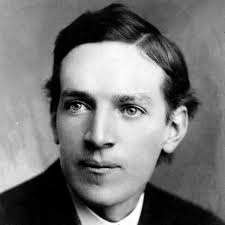The Jungle Page #15
The Jungle is a 1906 novel by the American journalist and novelist Upton Sinclair. Sinclair wrote the novel to portray the harsh conditions and exploited lives of immigrants in the United States in Chicago and similar industrialized cities.
At home, also, there was more good news; so much of it at once that there was quite a celebration in Aniele's hall bedroom. Jonas had been to have an interview with the special policeman to whom Szedvilas had introduced him, and had been taken to see several of the bosses, with the result that one had promised him a job the beginning of the next week. And then there was Marija Berczynskas, who, fired with jealousy by the success of Jurgis, had set out upon her own responsibility to get a place. Marija had nothing to take with her save her two brawny arms and the word “job,” laboriously learned; but with these she had marched about Packingtown all day, entering every door where there were signs of activity. Out of some she had been ordered with curses; but Marija was not afraid of man or devil, and asked every one she saw--visitors and strangers, or work-people like herself, and once or twice even high and lofty office personages, who stared at her as if they thought she was crazy. In the end, however, she had reaped her reward. In one of the smaller plants she had stumbled upon a room where scores of women and girls were sitting at long tables preparing smoked beef in cans; and wandering through room after room, Marija came at last to the place where the sealed cans were being painted and labeled, and here she had the good fortune to encounter the “forelady.” Marija did not understand then, as she was destined to understand later, what there was attractive to a “forelady” about the combination of a face full of boundless good nature and the muscles of a dray horse; but the woman had told her to come the next day and she would perhaps give her a chance to learn the trade of painting cans. The painting of cans being skilled piecework, and paying as much as two dollars a day, Marija burst in upon the family with the yell of a Comanche Indian, and fell to capering about the room so as to frighten the baby almost into convulsions. Better luck than all this could hardly have been hoped for; there was only one of them left to seek a place. Jurgis was determined that Teta Elzbieta should stay at home to keep house, and that Ona should help her. He would not have Ona working--he was not that sort of a man, he said, and she was not that sort of a woman. It would be a strange thing if a man like him could not support the family, with the help of the board of Jonas and Marija. He would not even hear of letting the children go to work--there were schools here in America for children, Jurgis had heard, to which they could go for nothing. That the priest would object to these schools was something of which he had as yet no idea, and for the present his mind was made up that the children of Teta Elzbieta should have as fair a chance as any other children. The oldest of them, little Stanislovas, was but thirteen, and small for his age at that; and while the oldest son of Szedvilas was only twelve, and had worked for over a year at Jones's, Jurgis would have it that Stanislovas should learn to speak English, and grow up to be a skilled man. So there was only old Dede Antanas; Jurgis would have had him rest too, but he was forced to acknowledge that this was not possible, and, besides, the old man would not hear it spoken of--it was his whim to insist that he was as lively as any boy. He had come to America as full of hope as the best of them; and now he was the chief problem that worried his son. For every one that Jurgis spoke to assured him that it was a waste of time to seek employment for the old man in Packingtown. Szedvilas told him that the packers did not even keep the men who had grown old in their own service--to say nothing of taking on new ones. And not only was it the rule here, it was the rule everywhere in America, so far as he knew. To satisfy Jurgis he had asked the policeman, and brought back the message that the thing was not to be thought of. They had not told this to old Anthony, who had consequently spent the two days wandering about from one part of the yards to another, and had now come home to hear about the triumph of the others, smiling bravely and saying that it would be his turn another day. Their good luck, they felt, had given them the right to think about a home; and sitting out on the doorstep that summer evening, they held consultation about it, and Jurgis took occasion to broach a weighty subject. Passing down the avenue to work that morning he had seen two boys leaving an advertisement from house to house; and seeing that there were pictures upon it, Jurgis had asked for one, and had rolled it up and tucked it into his shirt. At noontime a man with whom he had been talking had read it to him and told him a little about it, with the result that Jurgis had conceived a wild idea. He brought out the placard, which was quite a work of art. It was nearly two feet long, printed on calendered paper, with a selection of colors so bright that they shone even in the moonlight. The center of the placard was occupied by a house, brilliantly painted, new, and dazzling. The roof of it was of a purple hue, and trimmed with gold; the house itself was silvery, and the doors and windows red. It was a two-story building, with a porch in front, and a very fancy scrollwork around the edges; it was complete in every tiniest detail, even the doorknob, and there was a hammock on the porch and white lace curtains in the windows. Underneath this, in one corner, was a picture of a husband and wife in loving embrace; in the opposite corner was a cradle, with fluffy curtains drawn over it, and a smiling cherub hovering upon silver-colored wings. For fear that the significance of all this should be lost, there was a label, in Polish, Lithuanian, and German--“Dom. Namai. Heim.” “Why pay rent?” the linguistic circular went on to demand. “Why not own your own home? Do you know that you can buy one for less than your rent? We have built thousands of homes which are now occupied by happy families.”--So it became eloquent, picturing the blissfulness of married life in a house with nothing to pay. It even quoted “Home, Sweet Home,” and made bold to translate it into Polish--though for some reason it omitted the Lithuanian of this. Perhaps the translator found it a difficult matter to be sentimental in a language in which a sob is known as a gukcziojimas and a smile as a nusiszypsojimas. Over this document the family pored long, while Ona spelled out its contents. It appeared that this house contained four rooms, besides a basement, and that it might be bought for fifteen hundred dollars, the lot and all. Of this, only three hundred dollars had to be paid down, the balance being paid at the rate of twelve dollars a month. These were frightful sums, but then they were in America, where people talked about such without fear. They had learned that they would have to pay a rent of nine dollars a month for a flat, and there was no way of doing better, unless the family of twelve was to exist in one or two rooms, as at present. If they paid rent, of course, they might pay forever, and be no better off; whereas, if they could only meet the extra expense in the beginning, there would at last come a time when they would not have any rent to pay for the rest of their lives.
Translation
Translate and read this book in other languages:
Select another language:
- - Select -
- 简体中文 (Chinese - Simplified)
- 繁體中文 (Chinese - Traditional)
- Español (Spanish)
- Esperanto (Esperanto)
- 日本語 (Japanese)
- Português (Portuguese)
- Deutsch (German)
- العربية (Arabic)
- Français (French)
- Русский (Russian)
- ಕನ್ನಡ (Kannada)
- 한국어 (Korean)
- עברית (Hebrew)
- Gaeilge (Irish)
- Українська (Ukrainian)
- اردو (Urdu)
- Magyar (Hungarian)
- मानक हिन्दी (Hindi)
- Indonesia (Indonesian)
- Italiano (Italian)
- தமிழ் (Tamil)
- Türkçe (Turkish)
- తెలుగు (Telugu)
- ภาษาไทย (Thai)
- Tiếng Việt (Vietnamese)
- Čeština (Czech)
- Polski (Polish)
- Bahasa Indonesia (Indonesian)
- Românește (Romanian)
- Nederlands (Dutch)
- Ελληνικά (Greek)
- Latinum (Latin)
- Svenska (Swedish)
- Dansk (Danish)
- Suomi (Finnish)
- فارسی (Persian)
- ייִדיש (Yiddish)
- հայերեն (Armenian)
- Norsk (Norwegian)
- English (English)
Citation
Use the citation below to add this book to your bibliography:
Style:MLAChicagoAPA
"The Jungle Books." Literature.com. STANDS4 LLC, 2025. Web. 10 Jan. 2025. <https://www.literature.com/book/the_jungle_272>.




Discuss this The Jungle book with the community:
Report Comment
We're doing our best to make sure our content is useful, accurate and safe.
If by any chance you spot an inappropriate comment while navigating through our website please use this form to let us know, and we'll take care of it shortly.
Attachment
You need to be logged in to favorite.
Log In